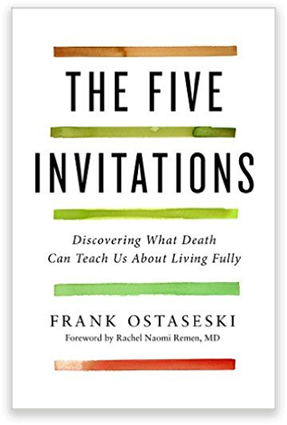
Over the past thirty years, I have sat on the precipice of death with a few thousand people. Some came to their deaths full of disappointment. Others blossomed and stepped through that door full of wonder. What made the difference was the willingness to gradually live into the deeper dimensions of what it means to be human. One of those deeper dimensions of what it means to be human is to truly understand the nature of our impermanence.
Years ago, a friend and I started a small preschool program. Occasionally, we would take the three-to-five-year-olds into the nearby woods with the task of finding “dead things.” The children loved this game. They would happily collect fallen leaves, broken branches, a rusty old car part, and occasionally the bones of a crow or small animal. We would lay these discoveries out on a big blue tarp in a grove of fir trees and have a sort of show-and-tell.
At their young age, the children had no fear, only curiosity. They would examine each item carefully, rub it between their fingers, smell it—exploring the “dead things” in a close-up and personal way. Then they would share their thoughts.
Sometimes they would craft the most amazing stories about the history of an object. How a rusty car part had fallen from a star or spaceship as it passed above, or how a leaf was used as a blanket by a mouse until summer came and it was no longer needed.
I remember one child saying, “I think the leaves that fall from trees are very kind. They make room for little new ones to grow. It would be sad if trees couldn’t grow new leaves.”
While we mostly associate impermanence with sadness and endings, it is not all about loss. In Buddhism, impermanence is often referred to as the “Law of Change and Becoming.” These two correlated principles provide balance and harmony. Just as there is constant “dissolving,” there is also constant “becoming.”
We rely on impermanence. The cold you have today won’t last forever.
This boring dinner party will come to an end. Evil dictatorships crumble, replaced by thriving democracies. Even ancient trees burn down so that new ones can be born. Without impermanence, life simply could not be. Without impermanence, your son couldn’t take his first steps. Your daughter couldn’t grow up and go to the prom.
My own sense of impermanence was laid bare the day I suffered my heart attack. One day, I was the respected Buddhist teacher; the next, I was just another patient in a hospital gown with my butt hanging out. In the months that followed, I felt stripped of psychological defenses and identities that had once hardened me. I was humbled and helpless. I gave over entire days to tears, longing, regret, panic, and clinging to familiar stories that gave me a temporary sense of control.
During my recovery, I felt permeable to everything. The sublime beauty and the horror of the world could enter my consciousness without resistance.
I was receptive to it all. I welcomed it. There were no filters between me and any part of myself or the world. I was just Being.
The more permeable I became, the more I realized that we humans are just bundles of ever-changing conditions. We ought to hold ourselves more lightly. Taking ourselves too seriously is the cause of much suffering. We tell ourselves that we are in charge: “Buckle up! Get this done!” When in reality, we are quite helpless, subject to the events taking place around us. But that helplessness brings us into contact with our vulnerability, which can be a doorway to awakening, to a deeper intimacy with reality.
The gift of impermanence is that it places us squarely in the here and now. We know that birth will end in death. Reflecting on this might cause us to savor the moment, to imbue our lives with more appreciation and gratitude. We know that the end of all accumulation is dispersion. Reflecting on this might help us to practice simplicity and discover what has real value. We know that all relationships will end in separation. Reflecting on this might keep us from being overwhelmed by grief and inspire us to distinguish love from attachment.
Attention to constant change can help prepare us for the fact that the body will one day die.
However, a more immediate benefit of this reflection is that we learn to be more relaxed with impermanence now. When we embrace impermanence, a certain grace enters our lives. We can treasure experiences; we can feel deeply—all without clinging. We are free to savor life, to touch the texture of each passing moment completely, whether the moment is one of sadness or joy. When we understand on a deep level that impermanence is in the life of all things, we learn to tolerate change better. We become more appreciative and resilient.
In “Living and Dying: A Buddhist Perspective,” Carol Hyman wrote, “If we learn to let go into uncertainty, to trust that our basic nature and that of the world are not different, then the fact that things are not solid and fixed becomes, rather than a threat, a liberating opportunity.”
Everything will come apart. That is true of our bodies, our relationships, all of life. It is happening all the time, not just at the end when the curtain falls. Coming together inevitably means parting. Don’t be troubled. This is the nature of life.
Our lives are not solid and fixed. Knowing this intimately is how we prepare for death, for loss of any kind, and how we come to fully embrace constant change. We are not just our past; we are becoming. We can release grudges. We can forgive. We can free ourselves of resentment and regret before we die.
Don’t wait. Everything we need is right in front of us.
Impermanence is the doorway to possibility. Embracing it is where true freedom lies. 




Leave a Comment